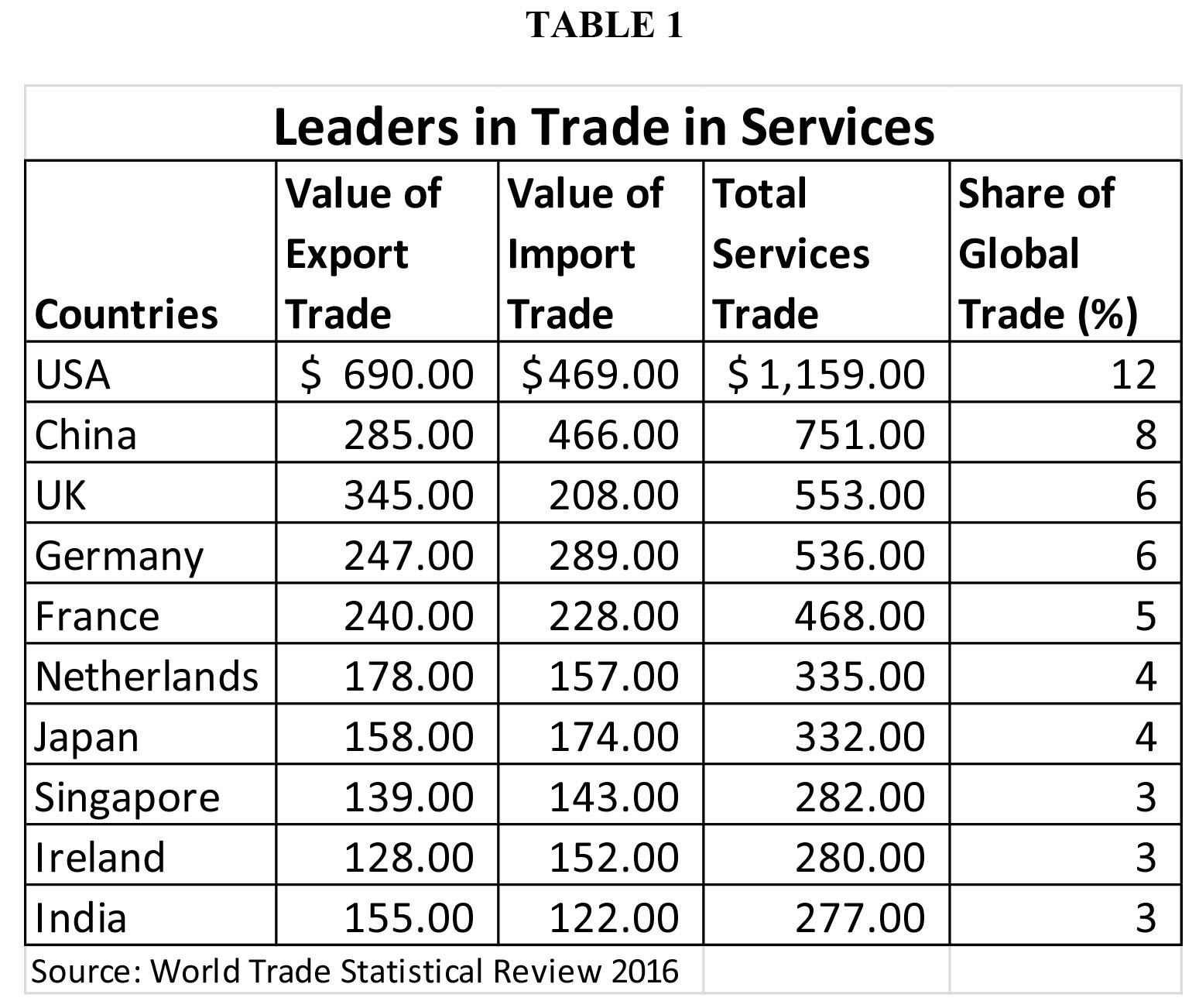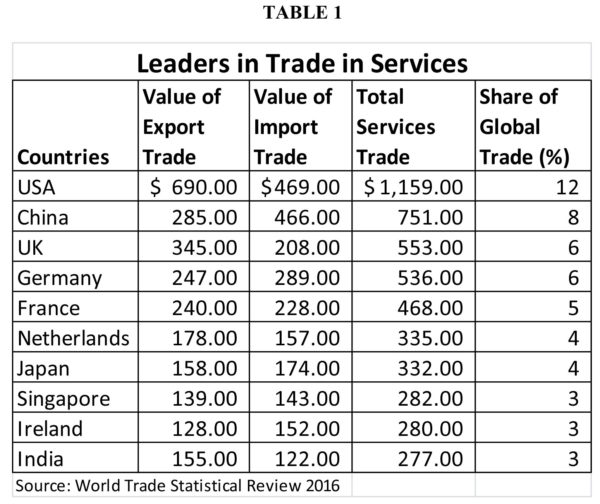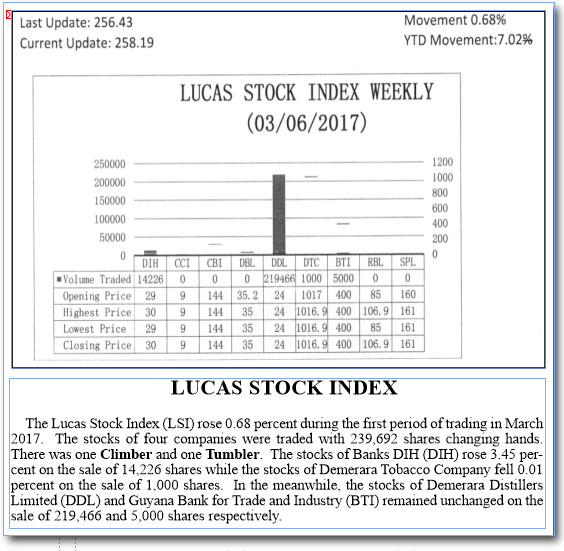Vital role
 Last week’s article offered an overview of trade in services. Among the things that it sought to do was to enable people to distinguish between services and goods that entered international trade. The intention of this week’s article is to broaden the understanding of the application of the concept in the context of Guyana’s desire to diversify its economy. In that regard, it is the intention of this writer to highlight some of the arguments that are frequently made to encourage developing countries to participate in trade in services, to point out who the leaders in trade in services are and to identify some of the challenges that Guyana faces in the area of trade in services.
Last week’s article offered an overview of trade in services. Among the things that it sought to do was to enable people to distinguish between services and goods that entered international trade. The intention of this week’s article is to broaden the understanding of the application of the concept in the context of Guyana’s desire to diversify its economy. In that regard, it is the intention of this writer to highlight some of the arguments that are frequently made to encourage developing countries to participate in trade in services, to point out who the leaders in trade in services are and to identify some of the challenges that Guyana faces in the area of trade in services.
Services play a vital role in all modern economies. It is usually the largest sector in any economy on account of the many support services that is required by the real sector. Financial, insurance, transportation, and telecommunication services, just to mention a few, deliver critical support to many parts of the economy. Some of the factors influencing the growth in supply of these services are ease of travel and the availability of communication technology. On the demand side, lifestyle preferences and demographic shifts emerge as important factors pushing people to use services. With services becoming more tradeable due to growing technological advances, international trade in services is seen as the new frontier of export diversification for developing countries.
Right direction
The trends in the trade in services have been highly favourable to developed and developing countries. Trade data from 2014 revealed that trade in services for developed countries grew by 5.3 per cent and for developing countries, it grew by 4.8 per cent. The transition countries did not fare so well. Their trade in services fell sharply by seven percent in the year in review. The performance of developing countries in 2014 suggests a turn in the right direction for them considering that some studies have suggested that trade in services is “largely overlooked and untapped” by these countries. The trade of developing countries is by no means significant in the global scheme of things. The principal reason advanced for the low performance in trade in services by developing countries is that they do not think that services are easily tradable. Given the way in which such trade has grown for developing countries, the idea that trade in services was not good might be a thing of the past.
Some efforts have been made to change the negative perception among developing countries about trade in services. A principal strategy has been to identify the economic and business drivers that can lead to an increase in trade in services. At the top of the list is information and communication technology (ICT). Advocates of trade in services have articulated the point that ICT has the ability to separate where services are produced from where services are consumed. To them, a greater understanding of the virtues of ICT would make it possible also to store and transfer large amounts of data enabling services. Many countries already have the infrastructure to use ICT but they might not have come around to a comfort level that persuades them to start looking for business using such technology.
Alternative engine of growth
In addition, the view has been advanced that many large companies tend to outsource many service activities. Developing countries can make use of available communication technologies to bid for these service contracts. Innovation strategies tend to promote trade in services. Services can provide an alternative engine of growth and help countries to leapfrog the manufacturing route to development. These efforts will require countries to be competitive in other areas including having the right type of infrastructure and skill sets to take advantage of services from which other countries are willing to disavow a comparative advantage.
Notwithstanding the aspirations and outlook of the developing countries, trade in services is dominated by developed countries and it may take a long time for developing countries to catch up with them. The reason has to do largely with the difference in economic development. One of the most important services is the transport of freight and passengers. The demand for transportation services is a derived demand. The movement of freight depends on the demand for the freight. Transportation is influenced by what happens in other parts of the domestic and global economy. An economic downturn in the domestic or foreign economy leads to a decline in the demand for transport services and vice versa. Very few developing countries build the seagoing vessels that transport large quantities of goods across great distances.
Global scheme of things
Many countries do not own competitive shipyards in the global scheme of things but are still important players in the shipping business. They do so by permitting countries to register their vessels under the flag of those countries. The Bahamas and Panama are two well-known examples in the Caribbean region. Guyana is not a popular destination for shipping services. Apart from being a country with a small market for goods, the depth of the rivers in the commercial districts does not make for competitive shipping. Still Guyana has an opportunity to increase substantially trade in sea transport services. The construction of a deep-water harbour opens up possibilities of larger shipping vessels coming to Guyana to serve parts of the South American market.
The top 10 exporters of services are the top 10 importers of services. The Table below provides information about who the top 10 participants in the services trade are. It also provides information on the value and share of each major country in the trade. Leading the way is the USA which exported US$690 billion worth of services and imported US$469 billion for a total trade of US$1.16 trillion. Its exports represented nearly 15 per cent of world exports in services while its imports represented a little more than 10 per cent. Also, the US participation in trade in services is between two to four times that of the trade of the other countries.
The top 10 countries accounted for 54 per cent of the trade in services in 2015. Seven of the 10 countries are members of the Organization for Economic Cooperation and Development (OECD). The leaders are also concentrated in the Asian and European regions, perhaps reflecting a greater investment by these countries in the services that enter the global trade.
Natural persons
With the rising need for cross-border trade in services, one could see increased use in, and dependence on, ICT. Free movement of natural persons is one of the four modes by which services can be supplied in international trade. Where the movement of natural persons is involved, there could be challenges as constantly emerges when Guyanese try to use the skills certificate process within the Caricom trading space. With the growing global rate of trade in services, the need arises for the development of more concrete strategies to overcome the artificial barriers that are erected to frustrate trade in services within the Caribbean sub-region. They impede the growth of services exports and hinder the economic growth of member countries who wish to use trade, including trade in services, to grow their economies. Professional services and business services harbour opportunities for Guyana to expand trade in services.







